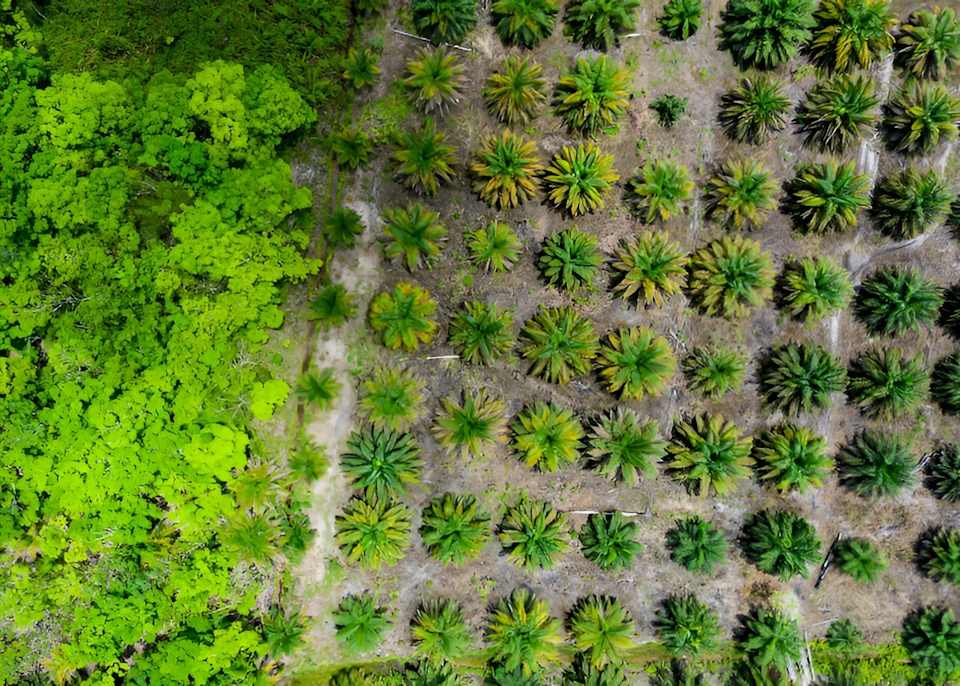
Climate Smart Fund
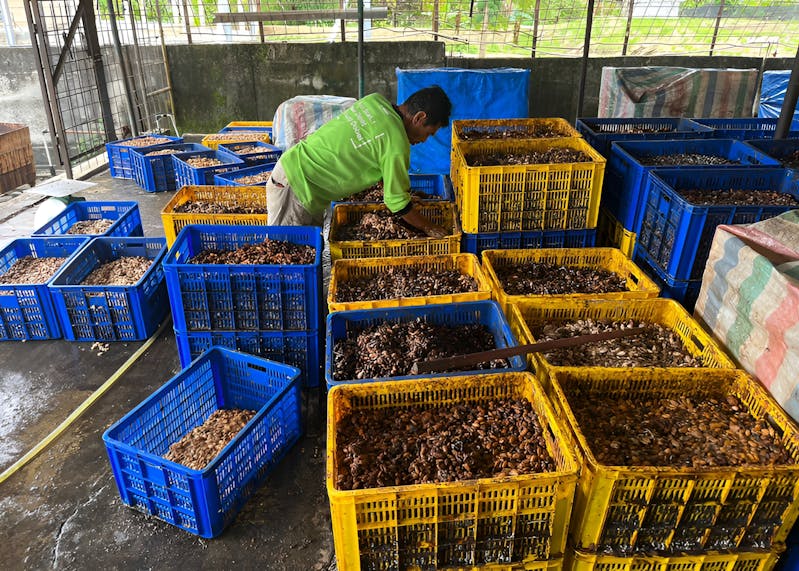
The Climate Smart Fund aims to reduce deforestation, increase smallholder farmer incomes, and build climate resilience in Indonesia.
Abler Nordic’s Climate Smart Fund works to create deforestation-free value chains by providing long-term affordable working capital, agricultural training and support with sustainability certification for smallholder farmers, enabling them to intensify production on existing plots. In return, the farmers commit not to encroach on the rainforest, with compliance and local deforestation closely monitored.
The pilot phase has been funded with the equivalent USD 10 million from Norway’s International Climate and Forest Initiative (NICFI), the country’s flagship program to combat climate change. NICFI is managed by the Norwegian Ministry of Climate and the Environment.
In addition, Temasek Foundation—the philanthropic arm of Singapore’s government-owned Temasek International— supports the Climate Smart Fund with a credit guarantee. This reduces financing costs for farmers, mitigates risk for private investors, and enables Temasek to back an innovative solution that promotes sustainable farming practices and climate resilience in Indonesia
Through partnerships with Koltiva for traceability, Amar Bank for banking services, and sustainable buyers like Musim Mas and Rea Holdings, the Fund aims for a "triple bottom line" of environmental, social and financial returns for sustainable farming communities.
The Challenge:
Two decades of palm oil expansion have driven significant deforestation across Indonesia, threatening rainforests that play a vital role in storing carbon and mitigating climate change. Smallholder farmers in Kalimantan and Sumatra, who often face limited yields, expand into forested areas to maintain incomes, causing increased carbon emissions and biodiversity loss.
The Goals
ENVIRONMENTAL: Reduced emissions and deforestation, and increased biodiversity.
SOCIAL: Poverty alleviation - farmers improve their income sustainably and build climate resilience
FINANCIAL: Fair financial returns to all parties from investing sustainably in small-scale agriculture.
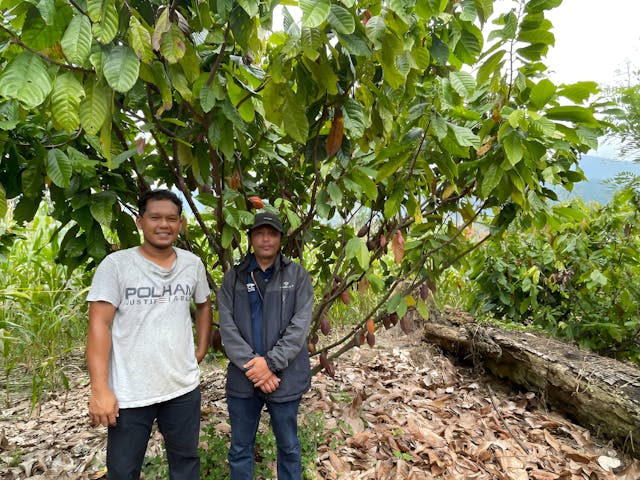
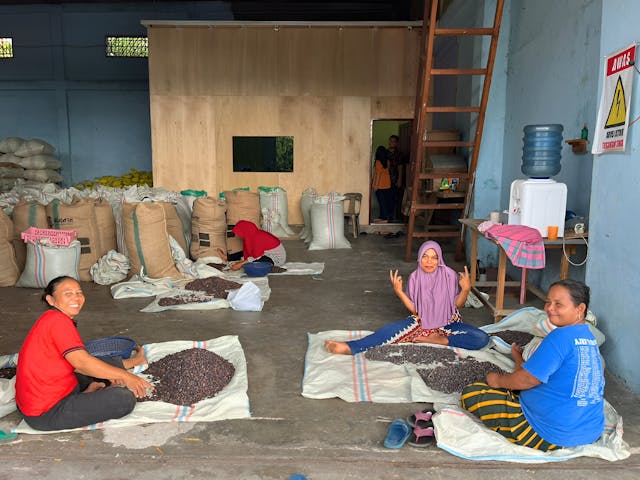
The Solution
Abler Nordic’s Climate Smart Fund provides long-term affordable working capital for smallholder farmers, enabling them to intensify production on existing farming plots across coffee, cocoa and palm oil.
Key aspects include:
Affordable Financing, Training and Land rights:
- Intensification as an alternative to expansion in the forest.
- Replanting loans, climate-smart training, quality seedlings, and fertilizers to increase yields sustainably. In its pilot phase, the fund has trained 2,100 farmers and increased their annual incomes by typically 35%.
- Farmers get help with land title that can be collateralized to reduce credit risk
Forest Protection and Regeneration:
- Improved participatory land-use plan for the village provides basis for forest protection and restoration; Agreements on ‘no deforestation’
- 16,500 residents engaged in land-use planning so far across 100,000 hectares.
- 200,000 hectares are monitored using satellite and drone data, complemented by ground verification
Climate Adaptation with Agroforestry:
- Through partnerships with Koltiva, Swisscontact, and ICRAF, climate-adaptive loans support cocoa and coffee farmers in establishing shade-grown agroforestry systems, combining crops with shade trees to create cooler microclimates and conserve soil health.
- These intercropping strategies help farmers adapt to rising temperatures and unpredictable rainfall while diversifying their incomes with additional crops.
- For palm oil, Abler Nordic collaborates with Livelihoods Fund, SNV, and Musim Mas to test similar agroforestry models, aiming to replicate these resilience-building benefits.
Empowering low-income communities
- Yields on existing plantations are improved through capacity building with the farmers and the community
- Improved quality is rewarded immediately through better pricing
- Annual income increase of typically 35 percent for participating smallholder farmers
Sustainability certification
- Globally accepted standards to sustainable production by commitment to RSPO/ISPO and other certifications.
- Results in increased product prices and better access to markets for the farmers.
- Currently, 350 farmers are certified as sustainable, with 400 more awaiting audit.
Cost efficient low-risk model
- Cashless model to ensure loans are used as intended.
- De-risking through triparty cooperation with a fintech and agri commodity buyer.
- Traceability to reduce risk of side-selling
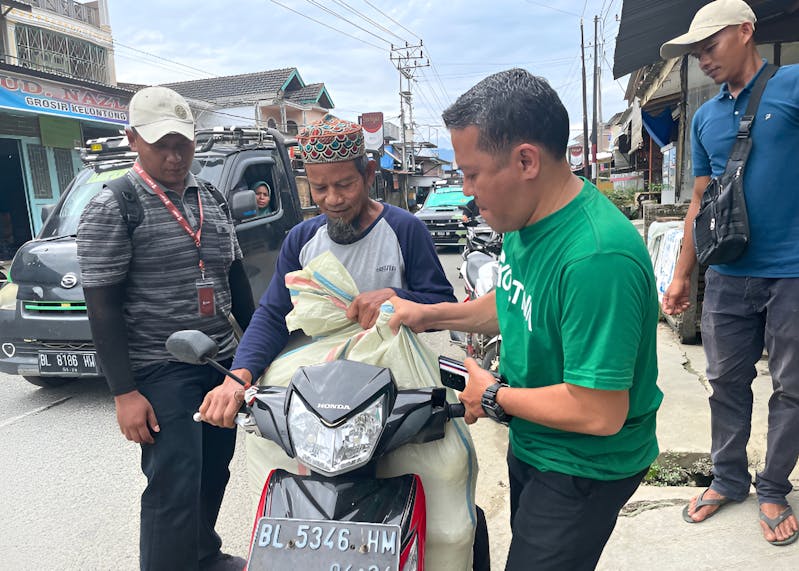
Our Local Approach and Key Partners:
A locally based team of seven plays a crucial role in the success of the Climate Smart Fund, working closely alongside our two Oslo-based team members. Our team on the ground ensures that we maintain strong relationships with local communities, authorities, and our partners, which are key to achieving sustainable, climate-adaptive agricultural practices.
Our partners play an equally important role in the fund’s success, offering the expertise, resources, and market access needed to support smallholder farmers in adopting climate-smart practices. Through collaboration with these organizations, we deliver financing, traceability, and a reliable market for smallholder produce, helping to drive the transition to more sustainable and resilient agricultural systems.
Key Partners:
- Koltiva: Agritech firm specializing in traceability and facilitating loans to farmers to help them improve production and access financing.
- Amar Bank: Our banking partner, responsible for holding the loan book and ensuring secure financial transactions for farmers.
- Rea Holding: A London-listed palm oil company with plantations in East Kalimantan, Rea Holding serves as a key buyer of smallholder produce.
- Musim Mas: One of the largest global producers of palm oil, working with smallholders across Indonesia, and providing a reliable market for their produce.
- Swisscontact, ICRAF, Livelihoods Fund, SNV: A group of international organizations collaborating with us to collaborating on climate adaptive loans for shade-grown agroforestry, alongside Koltiva and Musim Mas.
Our targets
Training and support in advanced agricultural techniques for 15,000 – 30,000 farmers, enhancing quality and yields to increase smallholder income.
Lending: 15,000 – 30,000 replanting loans, in addition to short term loans. Replanted fields give better yields and higher quality.
Sustainability certification and traceability for 15,000 – 30,000 smallholders to ensure increased product prices and better access to markets for the farmers.
Monitoring of Deforestation in areas covered by replanting programs to document deforestation-free produce.
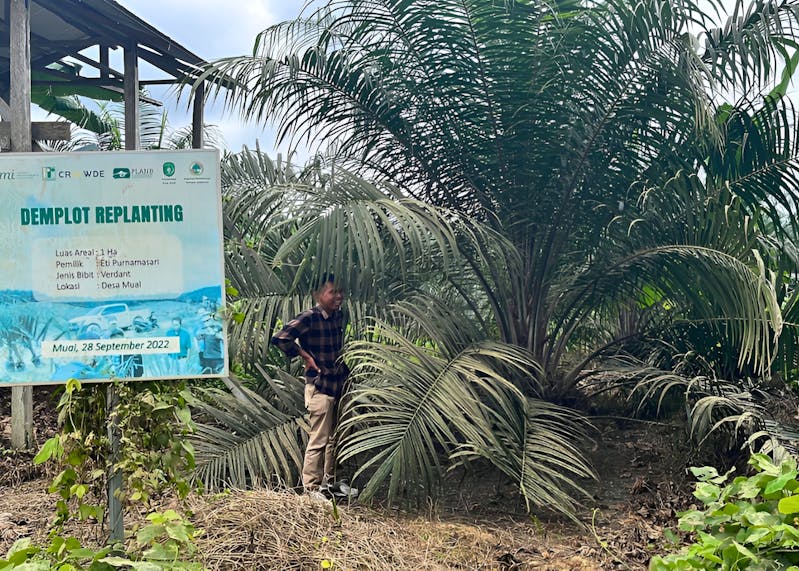
Scaling Impact with Catalytic Funding
The Climate Smart Fund aims to support 15,000 to 30,000 smallholder farmers by 2030, expanding the Fund to reach a $40 million first close through a blend of public and private financing.
The blended funding structure, currently backed by $10 million USD from Norway’s Ministry of Climate and Environment and a credit guarantee from Temasek Foundation, is designed to reduce risks and attract private investment for scalable, climate-resilient agriculture.
The structure will provide acceptable terms for both small-scale farmers and investors:
Attractive Terms for Investors and Farmers: Long-term, affordable loans for farmers, coupled with returns that appeal to investors.
Climate Mitigation and Adaptation: Reduces deforestation and biodiversity loss, and supports climate-smart practices that build resilience.
Poverty Reduction and Economic Resilience: Helps farmers sustainably increase yields, raising incomes and building resilience.
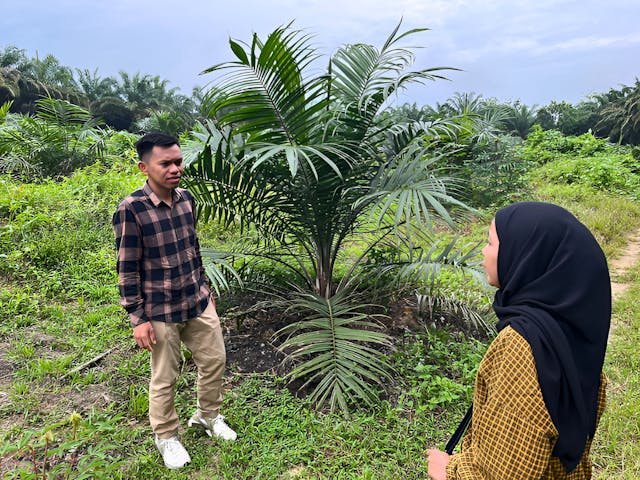
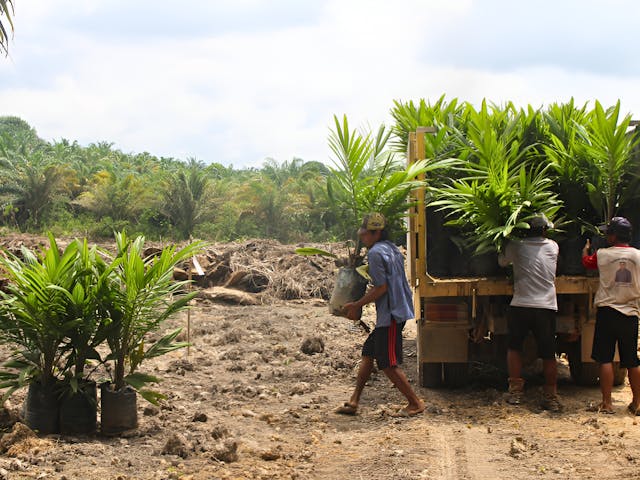
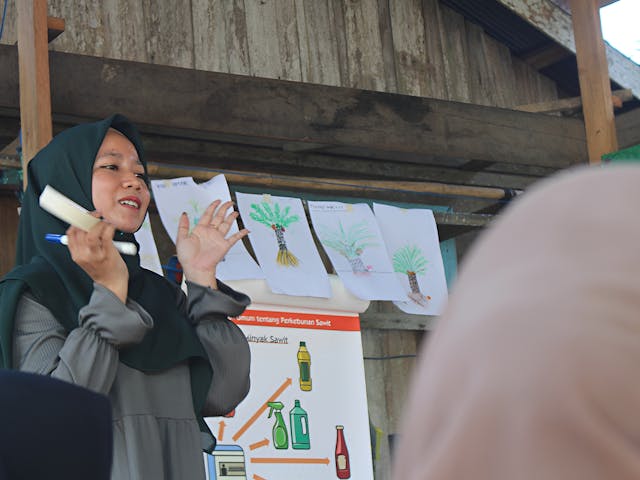
Guarantees and donor funding
To mobilize private sector capital, it is important to secure credit risk mitigation—such as Temasek Foundation’s guarantee—particularly for the long tenor of palm oil replanting. When the fund is established with a track record from lending, we expect the need for credit guarantees to be reduced.
Certain elements vital to forest protection—such as land-use monitoring, participatory village planning, and sustainability certification—rely on donor funding. These measures ensure compliance with conservation goals, amplifying the Fund’s positive impact on the environment and local communities.
Our track record
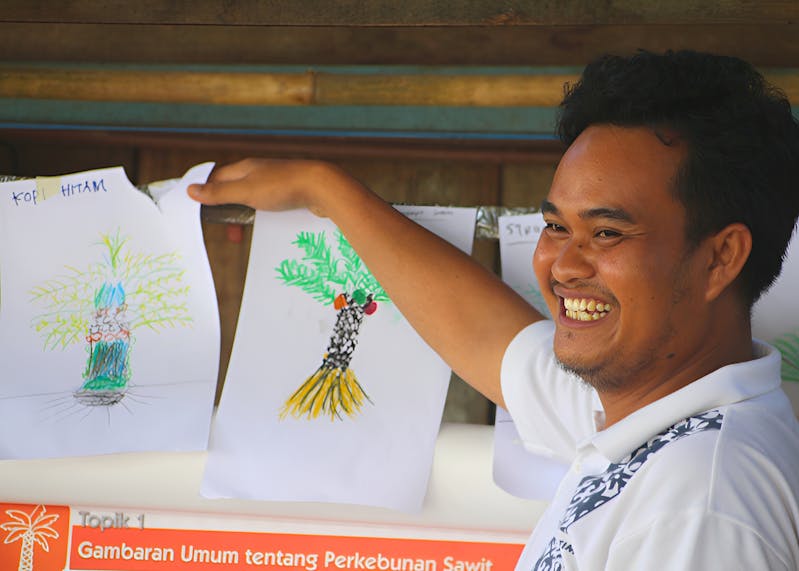
Abler Nordic (formerly Nordic Microfinance Initiative) was established in Oslo in 2008 as a public-private partnership investing in companies in Africa and Asia that offer financial services to low-income households. With a commitment to contributing to a more inclusive, just and environmentally sustainable society, Abler Nordic has raised over USD 350 million across five funds, with over 13 million households benefiting from access to affordable financial services.
Our investors include the Norwegian and Danish governmental funds for developing countries (Norfund and IFU) and private financial institutions including DNB Livsforsikring, Ferd, KLP, Lauritzen Fonden, PBU, Storebrand, TD Veen and Koldingvej 2, Billund A/S.
In Abler Nordic's last fund, with total commitments of USD 140 million, 60 percent of the capital came from private investors. Since 2008, the Ministry of Foreign Affairs and Norad have contributed catalytic funds for currency hedging and technical assistance. Abler Nordic has offices in Nairobi, New Delhi, Jakarta, Copenhagen, and Oslo, with a total of 22 employees.
